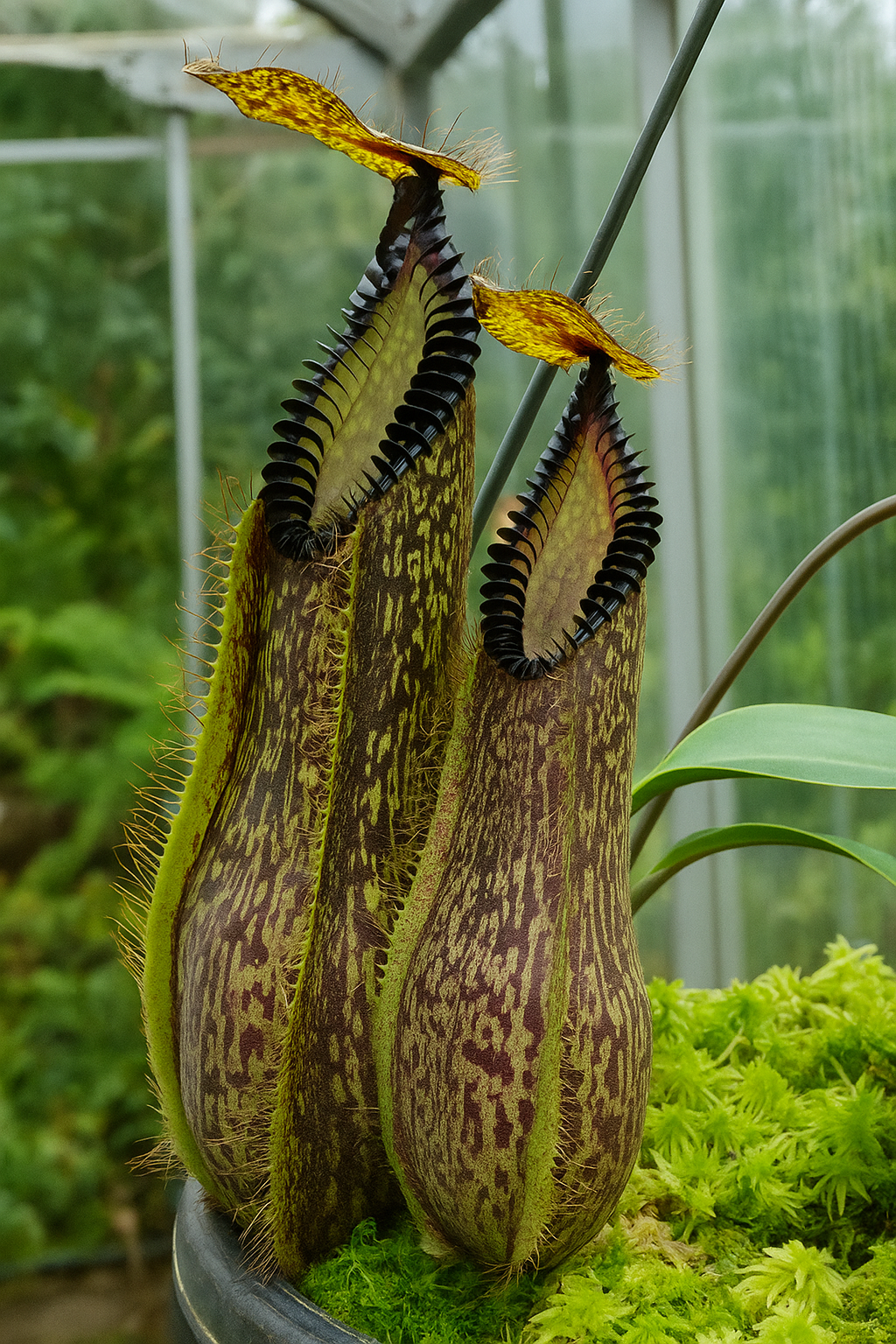The Nepenthes Seed Store
50 Nepenthes Hamata Seeds (Limited Supply)
50 Nepenthes Hamata Seeds (Limited Supply)
Couldn't load pickup availability
Contents
50 Hamata Seeds + 20 Bonus Seeds (random)
Nepenthes Hamata Seed Growing Guide
Species details
-
Highland species from Sulawesi
-
Requires cool nights, high humidity, and bright indirect light
-
Germination time: 1–6 months, sometimes up to 8
-
Slow growth when young
1. Preparation
-
Medium:
-
1 part milled sphagnum moss
-
1 part perlite or fine pumice
-
Optional: 10–20% fine orchid bark for better aeration
-
-
Pot: shallow container with drainage holes
-
Cover: humidity dome or clear plastic bag
-
Use distilled or reverse-osmosis water
-
Provide a bright, indirect light source (LED grow light or shaded window)
2. Germination Conditions
-
Day temperature: 70–75°F (21–24°C)
-
Night temperature: 50–55°F (10–13°C)
-
Humidity: 85–100%
-
Light: bright but indirect, 12–14 hours per day
-
Airflow: gentle and continuous
-
A nightly temperature drop is essential
3. Sowing the Seeds
-
Moisten the medium evenly (damp, not soggy)
-
Sprinkle seeds on the surface; do not bury them
-
Mist lightly to settle the seeds
-
Cover with dome or plastic bag to maintain humidity
-
Place under light, avoiding direct sun
-
Optional: after 4 weeks, mist once every two weeks with a weak (1:10) MaxSea 16-16-16 solution
4. Germination Period
-
Expect sprouting in 4–12 weeks, occasionally longer
-
Maintain consistent temperature, humidity, and moisture
-
Do not allow the surface to dry out
-
If mold appears, increase airflow or use a mild natural fungicide (cinnamon or sulfur solution)
5. Seedling Care
-
Do not transplant until seedlings have 3–4 true leaves and visible roots
-
Keep humidity around 80–90% with gentle airflow
-
Provide bright, diffused light (approx. 10,000–15,000 lux)
-
Begin very light fertilization after 3–4 months (1/8 tsp MaxSea per liter, once a month)
-
Avoid feeding directly into pitchers until established
6. Potting Up (Around 1 Year Old)
-
Use a slightly chunkier mix:
-
1 part long-fiber sphagnum
-
1 part perlite
-
Optional: 10% orchid bark
-
-
Maintain cool highland conditions with a nightly temperature drop
-
Keep medium consistently moist but not waterlogged
7. Common Issues
-
Mold on surface: excessive moisture or stagnant air → increase airflow
-
No germination: old seeds, too warm, or insufficient light → use fresher seed and ensure night temperature drop
-
Seedlings collapsing (damping off): fungal infection → use sterile medium and good air circulation
-
Leaf burn: excess fertilizer or too much light → flush with pure water and reduce intensity
8. Optional Stratification Test (for older seed)
-
Place seeds in slightly damp sphagnum inside a sealed plastic bag
-
Refrigerate for 2–3 weeks
-
Sow immediately after removing from the refrigerator
Share

